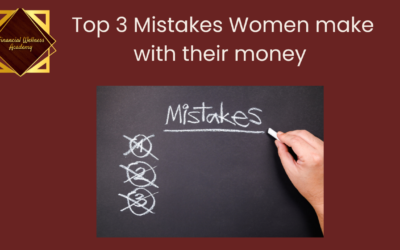“The biggest adventure you can take is to live the life of your dreams.” – Oprah Winfrey
Do you ever get that dull murmuring that you are settling and playing it safer than you intended? This is a common feeling for women. Many women find themselves lost in marriage and motherhood. If this is you, press play and arm yourself with some simple ideas to move forward from this crossroads in your life.
We’ve all heard the phrase “don’t settle,” but what does it really mean to settle? For years, I was the quintessential “good woman” – putting everyone else’s needs before my own, maintaining a picture-perfect facade, and slowly losing myself in the process. According to a recent study by the National Marriage Project, 43% of women report having settled in their relationships, citing fear of being alone, financial concerns, or societal pressure as primary reasons.
The Slow Fade
Looking back, I realize I was dying by carbon monoxide poisoning – metaphorically speaking. The deterioration was so gradual, so subtle, that I barely noticed how I was becoming increasingly compliant, increasingly distant from my authentic self. I was existing, not living.
The signs were there, though I chose to ignore them:
- Constantly diminishing my own needs
- Avoiding conflict at all costs
- Losing interest in activities I once loved
- Feeling disconnected from my own identity
- Making excuses for my unhappiness
During the COVID pandemic, like many women, I was forced to sit with my thoughts and feelings without the usual distractions. I finally faced a truth I’d been avoiding: I wasn’t happy in my relationship. This wasn’t about blame or pointing fingers – it was about my own satisfaction and authenticity. I had spent years prioritizing everyone else’s needs: wanting to protect my children from disruption, shield my husband from hurt, and preserve my religious family’s reputation.
But here’s the crucial realization: nobody asked me to make these sacrifices. I chose to put myself last.
The Psychology of Settling
Research in social psychology reveals interesting patterns about why women settle. Dr. Susan Johnson, a leading relationship expert, notes that women often confuse settling with compromise. While healthy relationships require compromise, settling means consistently sacrificing your core values and needs.
Common reasons women settle include:
- Fear of economic instability
- Concern about social stigma
- Worry about children’s wellbeing
- Low self-worth
- Cultural or religious pressure
- Fear of being alone
Breaking Free: The Journey to Authenticity
When I finally decided to make a change, it wasn’t easy. In fact, it was hellish at times. But not for a single second have I regretted choosing authenticity over comfort. Because here’s what I learned: we get one life. Just one. And the example we set, especially for our children, matters profoundly.
The journey to authenticity typically follows several stages:
1. Awakening
- Recognizing the disconnect between your life and your values
- Acknowledging your unhappiness
- Starting to question long-held beliefs
2. Resistance
- Facing internal obstacles
- Dealing with fear and guilt
- Confronting societal expectations
3. Exploration
- Rediscovering personal interests
- Setting boundaries
- Building support systems
4. Action
- Making concrete changes
- Having difficult conversations
- Taking calculated risks
The Impact on Children: A Deeper Look
Many women justify settling by saying it’s “better for the kids.” However, child development experts paint a different picture. Dr. Jennifer Rhodes, a clinical psychologist, states that children learn their relationship patterns by observing their parents. When we settle, we teach our children to:
- Devalue their own needs and desires
- Accept unhappiness as normal
- Fear authentic self-expression
- Prioritize others’ comfort over their own wellbeing
Research shows that children of parents who model authentic living and healthy boundaries are more likely to:
- Develop strong self-esteem
- Form healthier relationships
- Make better life choices
- Stand up for themselves
- Pursue their dreams confidently
Practical Steps Toward Change
Change doesn’t have to be dramatic or immediate. Here’s a practical roadmap:
1. Financial Preparation
- Create a personal emergency fund
- Develop marketable skills
- Understand your current financial situation
- Consider career advancement opportunities
2. Emotional Groundwork
- Start therapy or counseling
- Build a support network
- Journal your thoughts and feelings
- Practice self-care consistently
3. Communication Skills
- Learn to express needs clearly
- Practice setting boundaries
- Develop conflict resolution skills
- Build confidence in your voice
4. Personal Development
- Rediscover old interests
- Try new activities
- Meet new people
- Set personal goals
The Role of Financial Wellness
Financial independence is crucial for women considering major life changes. Studies show that financial dependence is one of the primary reasons women stay in unsatisfying situations. Key aspects of financial wellness include:
Rediscover old interests
Try new activities
Meet new people
Financial independence is crucial for women considering major life changes. Studies show that financial dependence is one of the primary reasons women stay in unsatisfying situations. Key aspects of financial wellness include:
- Understanding your current financial position
- Building emergency savings
- Developing multiple income streams
- Planning for long-term security
- Understanding investment basics
- Building credit in your own name
Moving Forward
Remember, choosing not to settle doesn’t mean choosing chaos. It means choosing growth, authenticity, and self-respect. The journey might be challenging, but the destination – a life truly lived – is worth every step.
Consider these reflection questions:
- What would your ideal life look like?
- What’s one small step you could take today?
- What’s holding you back?
- What support do you need?
A Final Note
Your journey toward authenticity is unique to you. There’s no universal timeline or roadmap. What matters is recognizing when you’re settling and taking those first brave steps toward change.
Don’t wait decades, as I did, to start honoring your truth. The time to start living authentically is now.
If you’re struggling with these issues and would like to discuss how financial wellness plays into your journey toward authenticity, I offer complimentary 30-minute clarity calls. Sometimes, having a supportive conversation is the first step toward positive change. Book your spot here https://bit.ly/financial-wellness-clarity-call-
To Your Financial Wellness,
Caitriona




